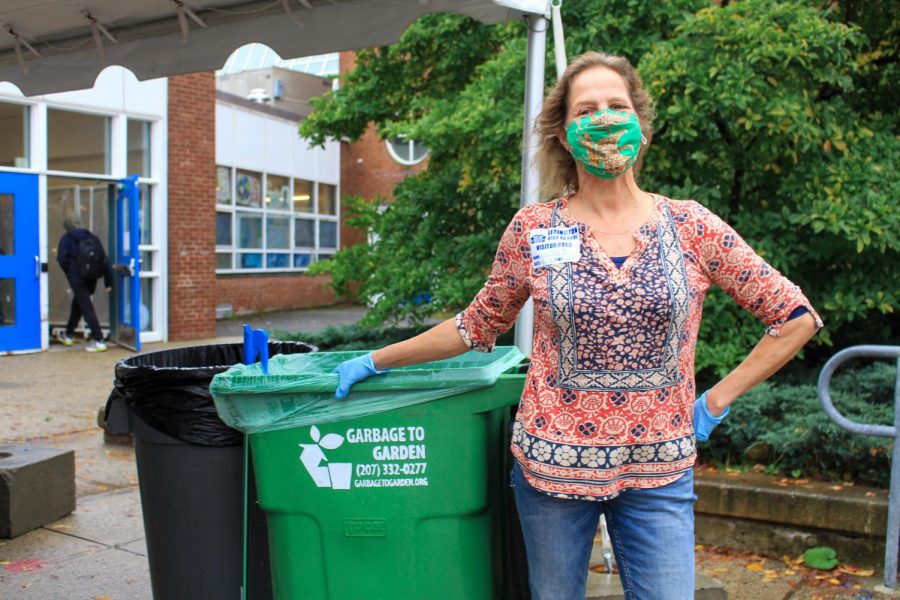LHS Green Team Promotes Sustainability
December 3, 2021
The Lexington High School Green Team aims to protect the environment by encouraging students to accurately sort their food items for recycling and compost.
The Green Team was founded by parent volunteers. It began in elementary schools before eventually spreading throughout Lexington Public Schools. The LHS program started when Tina McBride and Lin Jensen, Lexington Town Meeting members, set up composting with foreign language teachers at an international-themed supper at Diamond Middle School. Following their success, they discussed a larger initiative with the LPS administration, the custodial staff, and the lunch monitors to extend the Green Team to LHS.
“We had to explain and convince them that what we were going to do wasn’t going to increase their work, but that it was going to decrease the volume of the trash by redirecting the organic food waste from the regular waste stream,” McBride said.
Communication is critical for the Green Team to ensure their operations are efficient and effective.
“One of the challenges is that you have to have everyone on board for it to work. Communication has to be ongoing amongst several people,” Jensen said.
The Green Team collects approximately 40 tons of compost each year to send to composting companies. The waste in Lexington is sent to an incinerator in North Andover. While the team’s first contract was with Black Earth Compost, they are now working with Garbage to Gardens. Furthermore, the team is currently contributing to the climate justice movement by reducing the impact of food waste on low-income communities.
“Waste doesn’t disappear…There’s no more space in MA landfills. Trash is burned in poor neighborhoods because rich neighborhoods don’t want to deal with the waste,” Jensen said.
She also added that the program’s advantages are becoming evident.
“Anytime we compost or recycle, trash will reduce by around 80%. We used to use eight trash bags, but now it’s reduced to one bag at each station. The custodians can also see the difference,” Jensen said.
However, with many students taking advantage of the free lunch offerings this year, there is more food waste than usual. While many students sort their food correctly, there are plenty who make mistakes.
“Only 5% can make a mistake, but they have a huge impact. If facilities find trash amongst the compost, they would have to reject the waste,” Jensen said.
Knowing the dire consequences that may result from inaction has motivated the parent volunteers to help composting efforts.
“It’s a very rewarding experience because we have a great, motivated team that’s fun to work with,” Jensen said. “Everyone is supportive and self-motivated; what’s important is that ultimately we’re working towards the same goal.”
Although food continues to be wasted in schools, McBride says that composting within LPS can have a large-scale impact.
“When students compost instead of trash, it makes a big difference. It’s the perfect example of ‘think globally, act locally”. When people make little steps, we can ultimately affect institutions and behavior—that is what we’re trying to do with the LPS green teams,” McBride said.
In the future, the LHS Green Team hopes to recruit more student and parent volunteers, as well as bring awareness to students about sorting their food waste both at school and at home.

